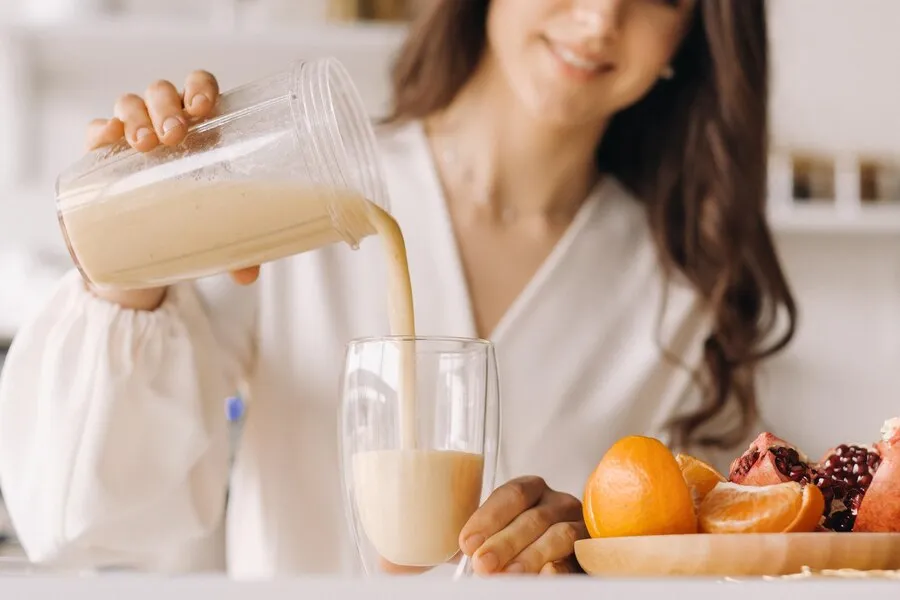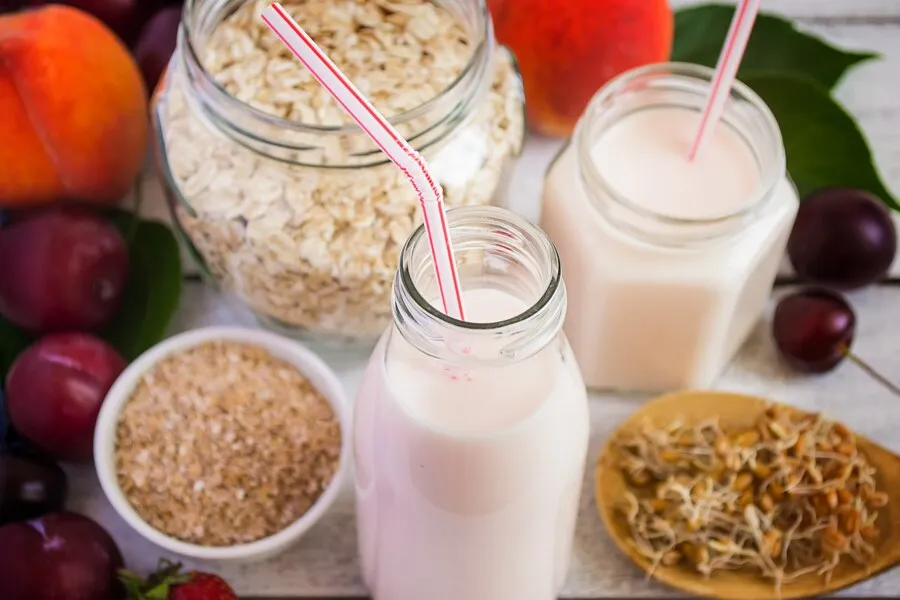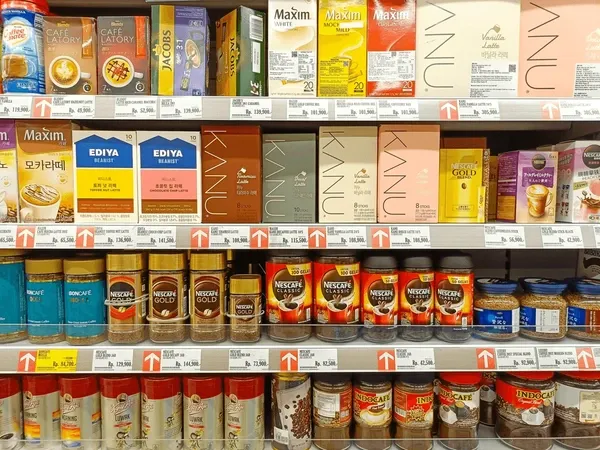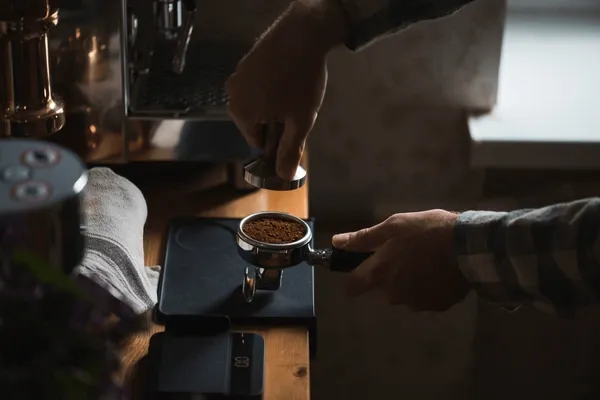In today’s fast-paced world, finding time for balanced nutrition can be challenging. That’s where the best meal replacement drinks come in, offering a convenient solution for those looking to manage their weight and optimize their nutrient intake. But with so many options on the market, how do you choose the right one? Let’s dive into the world of meal replacement drinks and explore the top contenders for weight loss and overall nutrition. Our guide to the best meal replacement drinks will help you make an informed decision for your health and fitness goals.
Understanding Meal Replacement Drinks
Before we dive into our curated list of the best meal replacement drinks, it’s crucial to understand what these products are and how they work. The best meal replacement drinks are carefully formulated to provide a balanced mix of essential nutrients typically found in a healthy meal. Unlike regular protein shakes or smoothies, top-quality meal replacement drinks are designed to be comprehensive nutrition solutions. They’re crafted to be low in calories while still offering sufficient protein, carbohydrates, fats, vitamins, and minerals to keep you satiated and energized throughout your day.
The Science Behind Meal Replacements
Recent research has shed light on the effectiveness of meal replacement drinks in weight management and nutrition. A meta-analysis published in the “International Journal of Obesity and Related Metabolic Disorders” found that incorporating meal replacements into a low-calorie diet led to greater weight loss compared to traditional calorie-restricted diets alone.
Dr. Sarah Thompson, a nutrition expert at the University of California, explains, “Meal replacement drinks can be an effective tool for weight loss when used correctly. They provide portion control and nutritional balance, which can be challenging to achieve with regular meals, especially for those with busy lifestyles.”
Key Factors in Choosing Meal Replacement Drinks
When selecting a meal replacement drink, consider these essential factors:
- Nutritional Balance: Look for products that offer a good mix of macronutrients (proteins, carbs, and fats) and micronutrients (vitamins and minerals).
- Calorie Content: Ensure the calorie count aligns with your weight loss or maintenance goals.
- Protein Quality: High-quality protein sources like whey, pea, or soy protein are crucial for muscle maintenance and satiety.
- Fiber Content: Adequate fiber promotes digestive health and helps you feel full longer.
- Sugar Content: Opt for drinks with low added sugars to avoid unnecessary calories and blood sugar spikes.
- Ingredient Quality: Choose products with natural ingredients and minimal artificial additives.

The 7 Best Meal Replacement Drinks
Now, let’s explore the top types of meal replacement drinks that excel in nutrition and support weight loss efforts. The best meal replacement drinks come in various formulations to suit different dietary needs and preferences.
1. High-Protein Whey-Based Drink
Key Features:
- 20-25g high-quality whey protein
- 5-7g fiber
- 24+ essential vitamins and minerals
- Low sugar content (2-3g)
This type of meal replacement stands out for its excellent protein-to-calorie ratio, making it ideal for those looking to build or maintain lean muscle mass while losing weight. Its high fiber content promotes satiety, helping you feel full longer and potentially reducing overall calorie intake.
2. Vegan Plant-Based Formula
Key Features:
- Plant-based protein blend (18-20g)
- Organic greens and superfoods
- Probiotics for gut health
- Complete amino acid profile
Perfect for those seeking a vegan option, this type of meal replacement offers a diverse blend of plant proteins. The addition of organic greens and superfoods provides phytonutrients that support overall health, while probiotics contribute to gut wellness.
3. Balanced Macronutrient Blend
Key Features:
- 25g protein from multiple sources
- Balanced ratio of proteins, carbs, and fats
- Slow-release carbohydrates
- Added omega-3 fatty acids
This type takes a holistic approach to meal replacement. Its balanced macronutrient profile and inclusion of omega-3 fatty acids support not just weight management but overall health and cognitive function.
4. Energy-Boosting Formula
Key Features:
- 20g protein
- Very low sugar (1-2g)
- Added caffeine for energy boost
- B-vitamins for metabolism support
Designed for those who need an extra kick to get through their day, this type of meal replacement includes caffeine and B-vitamins to help boost metabolism and energy levels, potentially supporting weight loss efforts.
5. High-Protein, Low-Calorie Option
Key Features:
- 30g protein
- 160-180 calories per serving
- Added digestive enzymes
- Chromium for blood sugar regulation
This variety offers a high protein content in a low-calorie package, making it excellent for those focused on muscle preservation during weight loss. The addition of digestive enzymes may help improve nutrient absorption.
6. Micronutrient-Rich Formula
Key Features:
- Moderate protein (15-18g)
- Extensive vitamin and mineral profile
- Added antioxidants
- Low glycemic index
This type stands out for its comprehensive micronutrient profile. While it may have slightly less protein than some options, its focus on overall nutrition makes it an excellent choice for those looking to improve their general health alongside weight management.
7. Ketogenic-Friendly Option
Key Features:
- High in healthy fats
- Moderate protein (15-18g)
- Very low carb (3-5g net carbs)
- Added MCT oil
Catering to those following a ketogenic diet, this type of meal replacement has a high-fat, low-carb profile. It can help maintain ketosis while providing essential nutrients and supporting weight loss efforts.
When choosing among the best meal replacement drinks, consider your specific dietary needs, weight loss goals, and lifestyle factors. Each type offers unique benefits, so you may need to experiment to find the one that works best for you.
Baca Juga: 10 Rekomendasi Meal Replacement Terbaik untuk Diet
The Role of Meal Replacement Drinks in Weight Loss
While meal replacement drinks can be effective tools for weight loss, it’s important to understand their proper use within a comprehensive weight management strategy.
Calorie Control
One of the primary benefits of meal replacement drinks is their ability to provide precise calorie control. Dr. Michael Chen, an endocrinologist specializing in weight management, notes, “Meal replacement drinks take the guesswork out of calorie counting. They provide a fixed amount of calories and nutrients, making it easier for individuals to maintain a calorie deficit necessary for weight loss.”
Nutrient Density
Quality meal replacement drinks are formulated to be nutrient-dense, meaning they pack essential vitamins and minerals into a relatively small number of calories. This can be particularly beneficial for those on low-calorie diets, helping to prevent nutrient deficiencies that can occur with severe calorie restriction.
Convenience and Consistency
In our busy modern lives, consistency is often the key to successful weight loss. Meal replacement drinks offer a convenient, grab-and-go option that can help individuals stick to their nutrition plans even when time is tight.
Potential Drawbacks
While meal replacement drinks offer many benefits, they’re not without potential drawbacks. Dr. Lisa Rodriguez, a registered dietitian, cautions, “Relying too heavily on meal replacement drinks can potentially lead to a decrease in dietary variety and may not teach long-term healthy eating habits. They should be used as part of a balanced approach to nutrition, not as a sole source of sustenance.”
Incorporating Meal Replacement Drinks into Your Diet
To maximize the benefits of meal replacement drinks for weight loss and nutrition, consider these tips:
- Replace Strategically: Start by replacing one meal a day, typically breakfast or lunch, with a meal replacement drink.
- Balance with Whole Foods: Ensure your other meals consist of whole, nutrient-dense foods to maintain dietary variety.
- Stay Hydrated: Drink plenty of water throughout the day, as some meal replacement drinks may not provide sufficient hydration.
- Listen to Your Body: Pay attention to hunger cues and energy levels. Adjust your intake if you’re consistently feeling hungry or fatigued.
- Combine with Exercise: Pair your meal replacement plan with regular physical activity for optimal results.
- Consult a Professional: Before starting any new diet plan, including the use of meal replacement drinks, consult with a healthcare provider or registered dietitian.
The Future of Meal Replacement Drinks
As nutrition science advances, so too does the formulation of meal replacement drinks. We’re seeing trends towards:
- Personalized Nutrition: Companies are beginning to offer customized meal replacement formulas based on individual nutritional needs and health goals.
- Sustainable Ingredients: There’s a growing focus on environmentally friendly and sustainably sourced ingredients in meal replacement products.
- Functional Additions: Some newer products are incorporating adaptogens, nootropics, and other functional ingredients to provide benefits beyond basic nutrition.
Conclusion
The best meal replacement drinks can be valuable tools for weight loss and nutrition when used as part of a balanced, well-planned diet. The seven types of meal replacement drinks we’ve explored offer a range of benefits to suit different nutritional needs and preferences. When choosing among the best meal replacement drinks, consider how their unique features align with your health goals. Remember, while these drinks can provide convenience and nutritional balance, they’re most effective when combined with a holistic approach to health that includes regular exercise, adequate sleep, and stress management. By selecting the best meal replacement drinks for your individual needs and incorporating them wisely into your lifestyle, you can support your journey towards improved nutrition and weight management.
As you consider incorporating meal replacement drinks into your routine, keep in mind that what works best can vary from person to person. It may take some experimentation to find the product and approach that suits your individual needs and lifestyle. Always prioritize your overall health and well-being, and don’t hesitate to seek professional guidance as you work towards your weight loss and nutrition goals.

Frequently Asked Questions
- Are meal replacement drinks safe for long-term use?
While meal replacement drinks are generally safe, they’re best used as part of a balanced diet rather than as a sole source of nutrition long-term. Consult with a healthcare professional for personalized advice on extended use. - Can I use meal replacement drinks if I’m not trying to lose weight?
Yes, meal replacement drinks can be used for various purposes, including weight maintenance, muscle gain, or simply as a convenient nutrition option. Choose a product that aligns with your specific nutritional goals. - How do meal replacement drinks compare to protein shakes?
Meal replacement drinks are designed to provide a balance of macronutrients and micronutrients similar to a complete meal, while protein shakes typically focus on providing protein and may not offer the same range of nutrients. - Can diabetics use meal replacement drinks?
Many meal replacement drinks can be suitable for diabetics, but it’s crucial to choose options with low sugar content and to consult with a healthcare provider before incorporating them into your diet. - Will I feel hungry if I replace a meal with a drink?
Quality meal replacement drinks are formulated to provide satiety. However, individual experiences may vary. If you consistently feel hungry, you may need to adjust your overall calorie intake or choose a more filling option.




